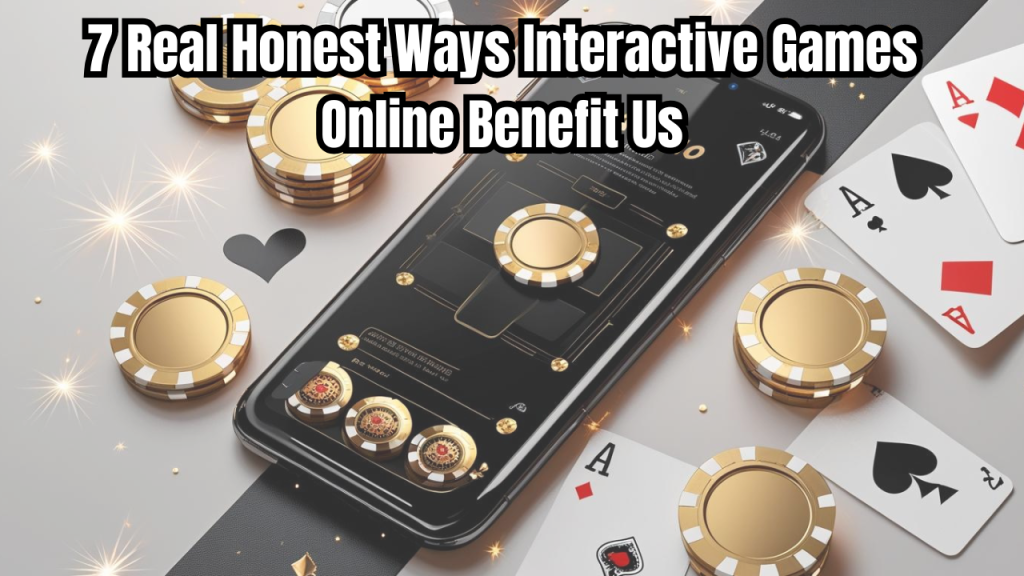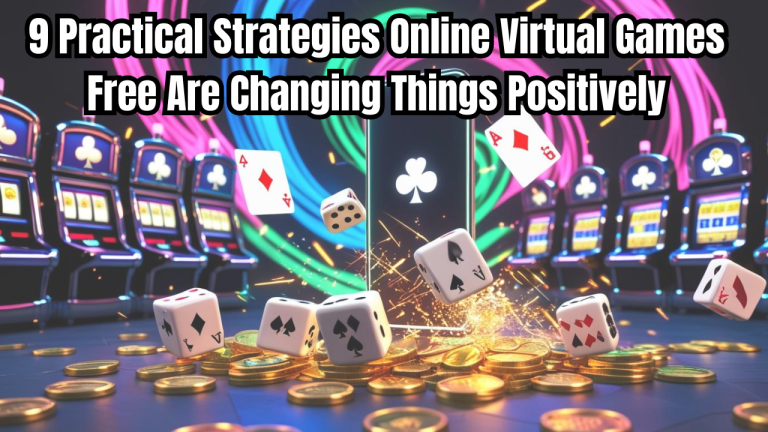If you have ever peered over someone’s shoulder while they were engross in a game—perhaps your child, your spouse, or even yourself in the mirror on your laptop—you might have wondered: What’s the point of all this?

The honest truth is that interactive games online are no longer only “games.” Our connection is based on these. We blow off steam using these methods. Sometimes, without awareness, they are the means of our learning, development, and even healing.
Having spent more than ten years penning essays on games online unblocked and digital life, I have seen both sides of the argument. Indeed, excessive screen time is a phenomena. Indeed, some games have no worth for your time. But once you identify the correct ones? In the best sense, they can shape lives.
1. They Support Our Feeling of Connectivity Even Alone
Here’s something more people should know: many people, particularly children and teenagers, find interactive games online for kids how they hang out.
This is the contemporary form of riding bikes around the community. Whether it’s Minecraft, Fortnite, or a smalltown cooperative game like Stardew Valley, it’s about being in the same digital space, doing something together, chatting, laughing, creating memories—sometimes even forging friendships that last years.
2. They Guide Us Through Problem Solving Without a Worksheet in View
The way these games online free promote realtime problemsolving excites me among other things about them.
You might be limited toolequipped prisoner of a dungeon. You might have to bargain a road forward with a friend or trade resources with total strangers. And the best thing about it? You have to act quickly, adjust, try again after a setback, and grow along the way.
Fun yet like a brain gym. And really, that is rather fantastic.
3. They inspire originality in seemingly simple ways.
Ask anyone who has spent some time building an entire village in Animal Crossing or visiting Roblox Studio—these online game online are more than just entertainment. Their creative playgrounds are rather unique.
They equip you with the means to create your own rules, tales, artwork. Often without awareness, you can create, write, animate, and even code. Children particularly absorb this practical learning disguised as play like sponges.
4. They Provide a Breathers From a World Moving Too Fast
To be really honest, life can be noisy. School, business, social media, news — nonstop.
Still, in a game the noise disappears. You’re free to concentrate. You have definite objectives. You are aware of the expectations. That framework makes one comfortable, especially for slowmoving, gentle interactive games online .
It is not about fleeoriented escape. It speaks of mental reset. About having a space of yours where things make sense and success is feasible—one project at a time
5. They Develop Real Skills Not Only Digital Ones
Many times, parents ask: “Are they really learning anything?”In And my response is: Yes, generally more than you would believe.
They are developing in time management, resource juggling, team building, speaking up, listening, leadership. They are learning how to manage annoyance, work through problems, and keep on trying in trying circumstances.
Those go beyond mere gaming ability. Those constitute life skills.
6. They Allow Us to Be Ourselves — or Someone New
Online games free are among the hippest things available since safe it can feel to just be you — especially for those who might feel ashamed or judged in real life.
Dream of being the brave knight? The genius builder? The humorous companion? Try it. Your avatar turns into a version of yourself you can shape and develop from, an extension of you.
Many young players and many adults find that this kind of identity helps boost selfconfidence and selfawareness. It has nothing to do with hiding. It’s about discovering your self in an environment that welcomes you.
7. They Create Global Friendships, Cross Borders, and Breakthrough Walls

While in real time chatting in Finland, a 10yearold in Brazil can build a castle with a 12yearold in another location.
Few other platforms allow, except interactive interactive games online , which link people across cultures in common experiences. They impart knowledge, compassion, and curiosity while players are merely “having fun.”
Many times, we discuss how the internet contracts the globe. This is thus what that looks like in use.
Where then do you start?
Here’s how to leap in smartly if you’re curious—or if your child is begging you to download “just one more game”:
First Step: Select Games With Positive Community Ratings
Seek out games with decent moderation, active developers, and polite player bases.
Second Step: Test It Out Groupwise
Should it be for your child, spend ten minutes playing with them. Seek questions. Ask questions. You could find their knowledge surprising.
Third step: balance offline and online
Most children understand that real life should not be replaced by any game. Clearly define your boundaries, but also know when gaming is actually meaningful.
Fourth Step: Discuss It
Discuss game events regardless of your role—that of parent or athlete. You constructed what? You came across someone? Why did you laugh? These interactions are important.
FAQs: Let’s Straightforward a Few Things

Do these games pay for themselves?
Most are free to start; they just add optional purchases. You could enjoy them without spending a dime.
Can adults enjoy these games too?
100% yes. Many adults play for stress relief, creative expression, or social connection. You’re never too old to play.
What if my child spends too much time gaming?
Set boundaries and mix in other activities. Still, consider what they are doing ingame. If they are creating, solving, working together—they most likely are learning something worthwhile.
.Conclusion
To sum up, interactive games online for kids today are much more than simply fun; they are also ways to connect with others, be creative, learn, and grow as a person. Games may be quite helpful in our lives.

They can help us make friends, solve problems, express ourselves, or just take a break from the stress of everyday life. Gaming may be more than just a hobby for kids, teens, and adults if they make smart decisions and set appropriate limits. How we choose to interact with them is the key.




